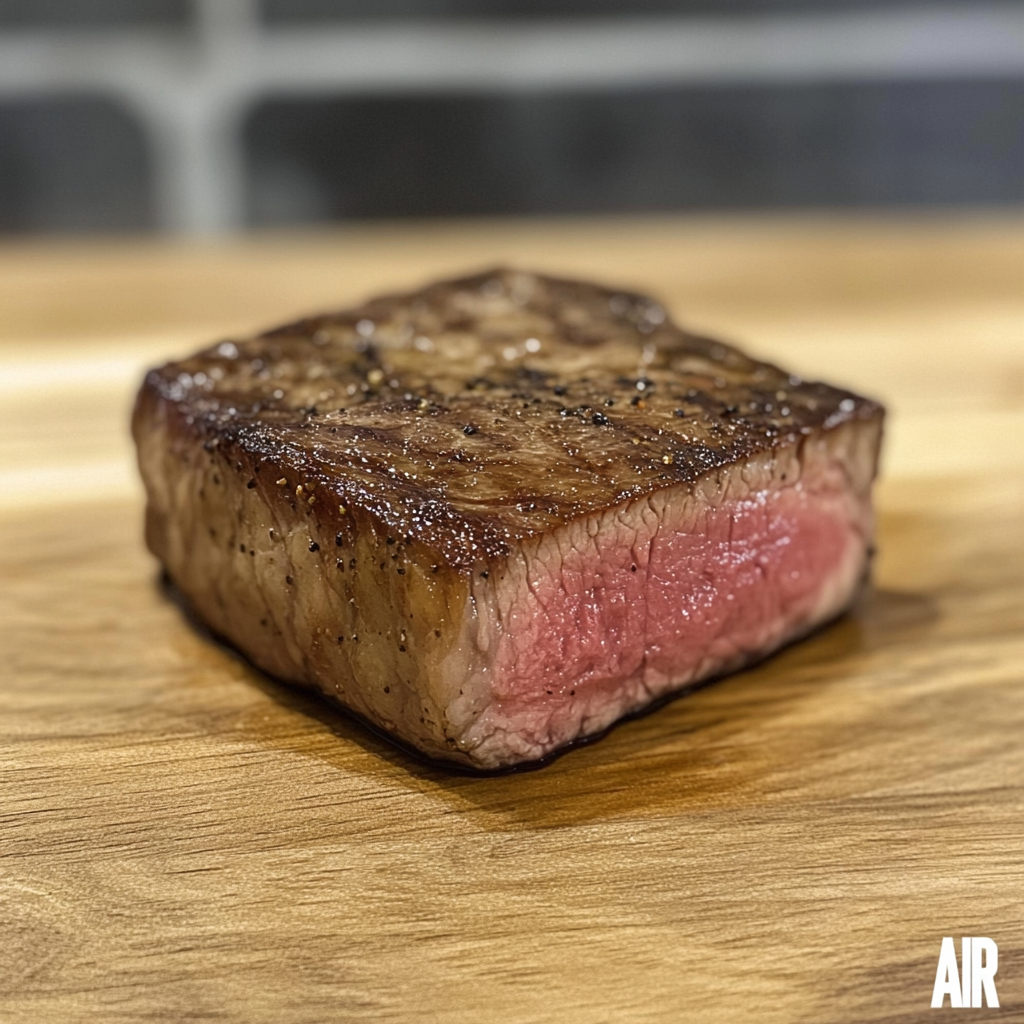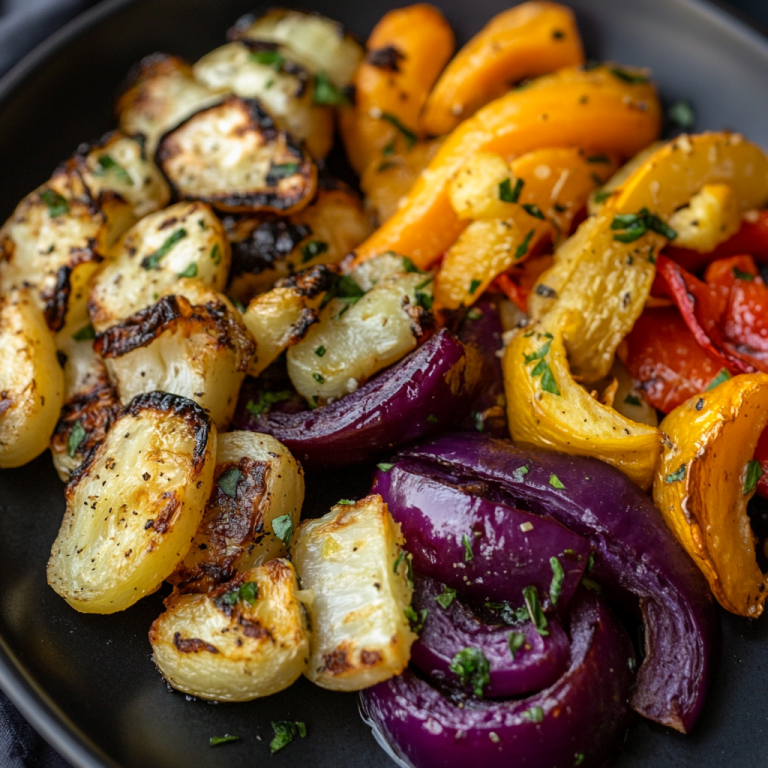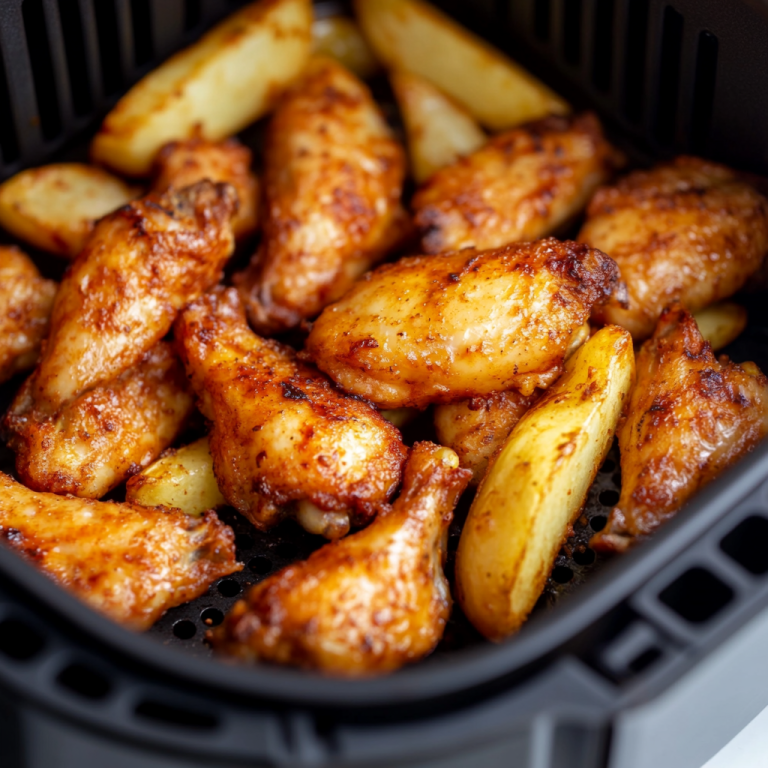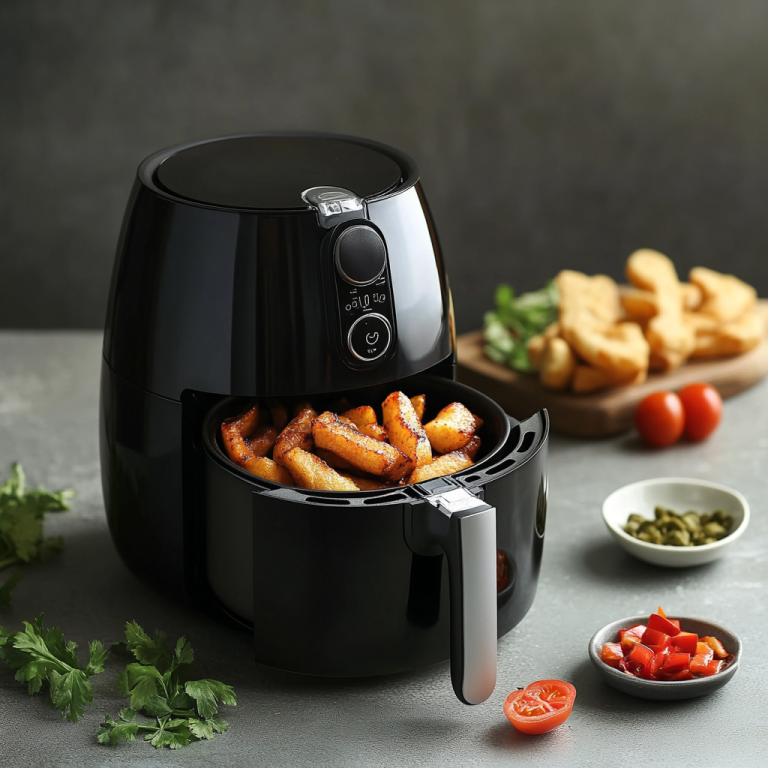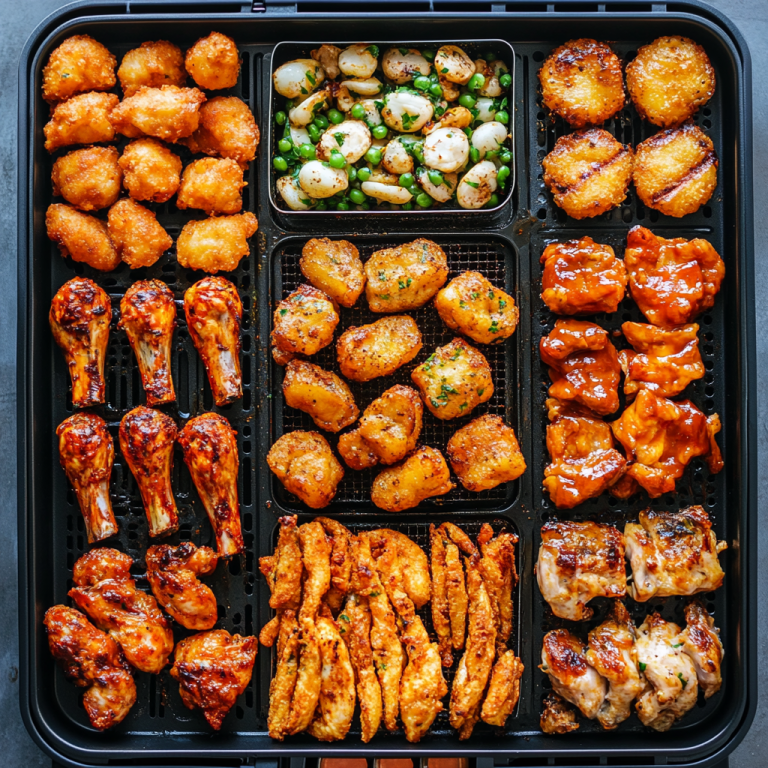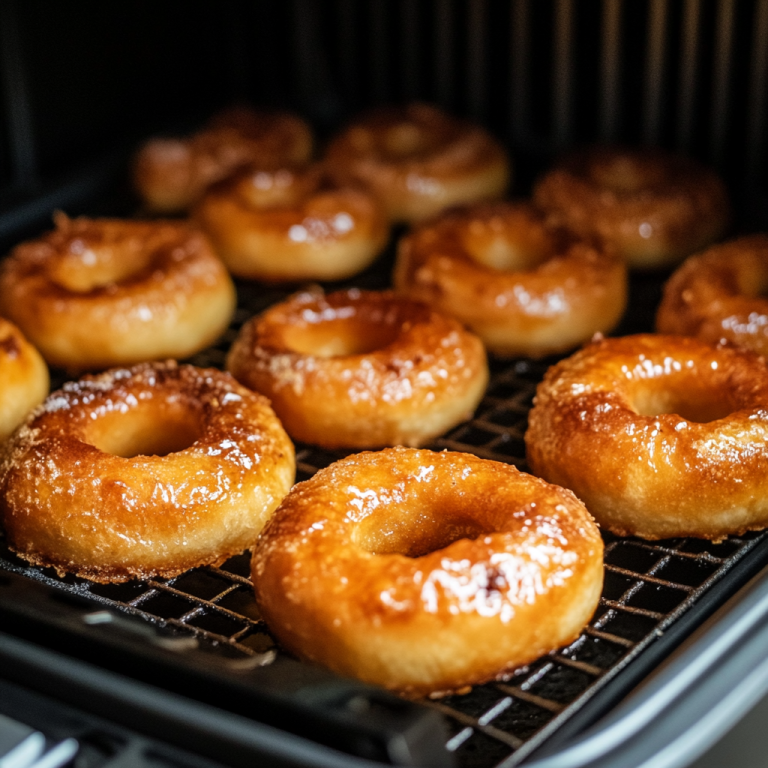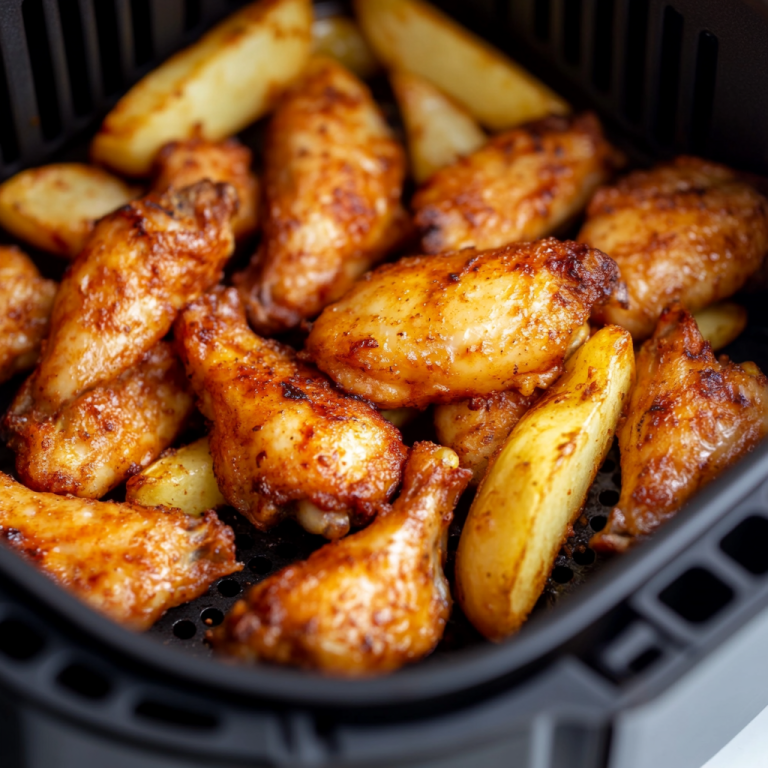Air Fryer Meat Doneness Guide: Perfect Results Every Time
Air fryers have revolutionized culinary practices by presenting a healthier alternative to traditional frying methods while achieving crispy and delicious results. This guide examines the advantages of utilizing an air fryer specifically for meat, emphasizing the health benefits and time-saving convenience it offers. It also addresses how to ensure that meat is cooked to perfection, discussing various factors that influence doneness and underscoring the significance of employing a meat thermometer. Additionally, the guide will provide specific cooking times for different types of meat, along with essential tips for seasoning and preheating. Prepare to enhance your proficiency with the air fryer.
What is an Air Fryer?
An air fryer is a contemporary kitchen appliance that employs convection cooking technology to achieve a crispy texture in food while substantially minimizing the amount of oil required compared to traditional frying methods. This versatile device has gained considerable popularity due to its capacity to prepare a wide range of foods, including meats, vegetables, and even frozen items, thereby facilitating efficient meal preparation. Whether one desires succulent chicken, tender pork, or crisp French fries, an air fryer can assist in achieving delectable results with minimal effort.
Benefits of Using an Air Fryer for Meat
Utilizing an air fryer for cooking meat presents several advantages that enhance flavor, improve food safety, and increase cooking efficiency. The air fryer s advanced rapid air circulation technology guarantees even cooking, resulting in juicy and tender outcomes. Furthermore, the reduced oil consumption associated with air frying promotes healthier dietary habits. Additionally, air frying significantly decreases cooking times compared to traditional methods, facilitating quicker meal preparation, which is particularly beneficial for health-conscious individuals and busy families.
Healthier Cooking Method
Air frying is increasingly recognized as a healthier cooking method compared to traditional frying techniques, primarily due to its significantly reduced oil usage. This method not only decreases excess calories but also preserves the quality and flavor of the food, enabling individuals to enjoy crispy textures without the associated guilt. The air fryer ensures that meats maintain their juiciness and tenderness while achieving an appealing browning effect, making it an excellent choice for health-conscious home cooks. Many individuals find that air frying aligns well with their dietary preferences, whether they are focused on weight management or seeking efficient cooking techniques to simplify meal preparation. By promoting portion control, this method encourages mindful eating without compromising on taste. The versatility of air fryers allows users to experiment with a variety of ingredients, from vegetables to proteins, while effectively reducing unhealthy fats typically associated with frying. Ultimately, this cooking method not only caters to those concerned about their health but also enhances the overall dining experience.
Convenient and Time-Saving
Air fryers are highly regarded for their convenience and time-saving capabilities, making them a favored kitchen appliance for busy households. With rapid preheating times and shorter cooking durations, air fryers enable users to prepare meals swiftly without sacrificing flavor or texture. This efficiency not only streamlines meal planning but also reduces energy consumption, rendering it a cost-effective option for daily culinary needs. Plus these advantages, many users find that air fryers foster culinary creativity by allowing for easy variations of recipes, ranging from crispy vegetables to healthier iterations of traditional fried dishes. For those new to cooking with air fryers, it is advisable to begin with simple recipes that require minimal ingredients to build confidence. Regular maintenance is crucial for ensuring optimal performance; this includes cleaning the basket after each use and periodically wiping down the exterior. Additionally, consulting product reviews can assist users in selecting the appropriate model, thereby facilitating well-considered choices and minimizing complications in the kitchen.
Determining Meat Doneness
Determining the doneness of meat is essential for ensuring both flavor and food safety, particularly when employing an air fryer. Different types of meat necessitate specific cooking times and internal temperatures to reach the desired levels of doneness, such as rare, medium, or wellington. The use of a doneness thermometer can provide an accurate measurement of internal temperature, thereby ensuring that the meals prepared are not only juicy and tender but also safe for consumption. A comprehensive understanding of these factors not only enhances the quality of culinary creations but also boosts the confidence of the cook.
Replacement Straw Compatible with Stanley 40 oz 30 oz Cup Tumbler, 6 Pack Reusable Straw with Cleaning Brush, Plastic, Clear
$5.99 (as of 21:17 GMT +00:00 - More info)Factors Affecting Doneness
Several factors can influence the doneness of meat when utilizing an air fryer, including the type of meat cut, cooking methods, and adherence to temperature guidelines. Thicker cuts of beef or pork may necessitate extended cooking times to ensure that the interior reaches a safe internal temperature, whereas smaller cuts, such as chicken breasts or lamb chops, will cook more rapidly. The air circulation provided by the air fryer is instrumental in achieving an even cook, ensuring that the meat remains tender and juicy. A comprehensive understanding of the frying technique is essential for optimizing cooking efficiency; it is not solely a matter of time. For instance, preheating the air fryer can significantly enhance the cooking process, promoting improved heat distribution that helps to seal moisture within the meat. Timing is critical; carefully monitoring the duration for which the meat has been in the fryer can prevent overcooking, which frequently results in dryness. It is vital to strike the appropriate balance, as factors such as meat thickness and initial temperature can markedly affect both doneness and flavor. Experimenting with these variables allows for a diverse range of delicious outcomes.
Using a Meat Thermometer
Utilizing a meat thermometer is a fundamental practice for ensuring that meat attains the appropriate internal temperature, thereby promoting food safety and enhancing flavor. By inserting a doneness thermometer into the thickest part of the meat, one can accurately determine when the protein has reached the desired level of doneness whether rare, medium, or well-done. This straightforward yet effective tool aids in preventing overcooking, ensuring that meals remain juicy and tender without reliance on guesswork. The significance of employing a meat thermometer cannot be overstated, particularly when handling various types of meat, from poultry to beef. Digital, instant-read, and probe thermometers each offer unique advantages, catering to diverse cooking methods and preferences. For example, digital thermometers provide rapid readings and are ideal for busy cooks, while probe thermometers allow for continuous monitoring during lengthy cooking processes. To maximize the benefits of your culinary endeavors, it is advisable to adopt best practices such as regularly calibrating your thermometer and checking multiple locations in larger cuts of meat. These cooking tips not only enhance the quality of dishes but also ensure the safety of the food being served, making them a valuable addition to any recipe collection.
Air Fryer Cooking Times for Different Types of Meat
Cooking times for various types of meat in an air fryer can differ considerably, making it essential to consult a reliable cooking chart or guide. For example, beef generally requires a higher internal temperature than chicken, while pork is positioned between the two. Comprehending these distinctions is crucial for achieving perfectly cooked meals, whether one is preparing juicy chicken breasts, tender pork chops, or flavorful lamb patties. This knowledge is fundamental to mastering air fryer recipes and ensuring food safety.
Beef
Cooking beef in an air fryer necessitates meticulous attention to cooking times and internal temperatures to achieve the desired levels of doneness. Whether preparing a succulent steak or tender beef ribs, comprehending the specific cooking times for various cuts is essential to ensure optimal flavor and texture. For instance, a medium-rare steak generally requires an internal temperature of 130-135 F, while well-done beef should reach approximately 160 F. The selection of seasonings and marinades can significantly enhance the dish, imparting unique flavors that complement the natural richness of beef. A simple rub of salt, pepper, and garlic powder can elevate a ribeye steak, whereas marinating flank steak in a mixture of soy sauce, ginger, and scallions can tenderize the meat and infuse it with a savory essence. Employing cooking methods such as searing followed by air frying can create a delightful crust, ensuring that each bite is both succulent and satisfying. By mastering these elements, one can achieve perfectly cooked beef that delights the palate.
Pork
Pork is a highly versatile meat that can be expertly prepared in an air fryer, provided that the recommended cooking times and internal temperature guidelines are adhered to. For example, pork chops should be cooked to an internal temperature of 145 F to ensure optimal juiciness and tenderness, while ground pork must reach a minimum temperature of 160 F to guarantee safe consumption. A thorough understanding of these specifications not only enhances flavor but also upholds food safety standards. Different cuts of pork, such as tenderloin, shoulder, and ribs, each necessitate specific cooking techniques to achieve the best results. Tender cuts like the tenderloin benefit from quick, high-heat cooking methods, whereas tougher cuts, such as the shoulder, may require extended cooking times to attain a desirable melt-in-your-mouth texture. Proper seasoning is essential; a simple rub of salt, pepper, and herbs can significantly elevate the flavor, and marinating the meat overnight can infuse it with deeper tastes. To enhance cooking efficiency, it is advisable to compile a collection of recipes that emphasize various pork cuts and their optimal preparation methods.
Chicken
Cooking chicken in an air fryer can produce exceptional results when appropriate cooking times and internal temperature guidelines are observed. It is imperative that chicken reaches an internal temperature of 165 F to ensure it is safe for consumption, regardless of the cut be it breast, thigh, or wings. Adhering to these standards will yield juicy and flavorful chicken that can compete with traditional cooking methods. Understanding the various cuts of chicken, such as drumsticks and tenderloins, will enhance meal preparation decisions, allowing for the selection of the appropriate cut for air frying. Each cut possesses its own ideal cooking time; for instance, chicken thighs typically require approximately 25 minutes at 380 F, while breasts cook more quickly, needing about 20 to 22 minutes. To further enhance the flavor profile, consider marinating the chicken in a mixture of herbs and spices or brining it beforehand. Serving these expertly cooked pieces alongside complementary side dishes, such as roasted vegetables or a fresh salad, will create a well-rounded meal that is sure to be appreciated by all.
Fish
Cooking fish in an air fryer presents a convenient method for achieving a crispy exterior while maintaining a moist and tender interior. Most fish fillets require an internal temperature of approximately 145 F for safe consumption; however, cooking times may vary based on the thickness of the fillet. By mastering these specific guidelines, one can enjoy flavorful fish that is both quick to prepare and pairs well with a variety of side dishes. When evaluating different types of fish, such as salmon, cod, or tilapia, it is important to note that each offers distinct flavor profiles and requires specific cooking times for optimal results. For example, thicker salmon fillets may take approximately 10-12 minutes to cook, whereas more delicate white fish, such as tilapia, typically requires only about 6-8 minutes. To enhance these dishes, one might consider experimenting with seasoning blends, such as lemon pepper or garlic herbs, which can beautifully complement the fish’s natural flavors. Additionally, marinating fish for even a brief period can infuse depth and richness, transforming it into not only a healthy option but also a highly appealing one, thereby allowing for a range of delightful recipe variations.
Tips for Perfectly Cooked Meat in the Air Fryer
Achieving perfectly cooked meat in an air fryer requires both technique and precise timing, and there are several strategies that can enhance culinary outcomes. Key practices include preheating the air fryer to ensure uniform cooking and exploring a variety of seasoning and marinade options to enhance flavor. Furthermore, comprehending the distinct cooking characteristics of different types of meat can significantly influence the final result, ensuring that meals are both juicy and tender.
Seasoning and Marinating
Proper seasoning and marinating are essential for enhancing the flavor profiles of meat when utilizing an air fryer. Experimenting with various herbs, spices, and marinades can lead to delightful variations in taste, ensuring that each meal is unique and enjoyable. Whether one favors a zesty citrus marinade for chicken or a rich spice rub for beef, these techniques can infuse dishes with remarkable flavor. To enhance the cooking experience, it is advisable to incorporate ingredients such as garlic powder, smoked paprika, or fresh herbs like rosemary and thyme into the seasoning repertoire. For a quick marinade, a combination of olive oil, vinegar, and soy sauce can be employed, not only to tenderize the meat but also to add depth to the flavor. Adhering to cooking tips, such as allowing the meat to marinate for at least an hour or even overnight can significantly improve the quality of the food. Additionally, engaging in culinary experiments by trying unexpected combinations, such as a sweet honey and mustard glaze or a spicy sriracha blend, can yield surprisingly delightful results with each attempt.
Preheating the Air Fryer
Preheating the air fryer is a straightforward yet effective practice that can significantly improve cooking efficiency and the overall quality of meals. By allowing the appliance to reach the desired temperature prior to adding food, optimal air circulation and even cooking are achieved, resulting in crispy exteriors and juicy interiors. This practice is particularly important for meats, as proper timing is essential for attaining the perfect level of doneness. To fully realize the benefits of preheating, it is advisable to set the air fryer to the required temperature for a duration of at least 3 to 5 minutes before commencing cooking. Adhering to food safety guidelines is imperative; it is crucial to avoid overcrowding the basket, as this can obstruct airflow and lead to uneven cooking. Moreover, a preheated air fryer not only enhances flavor but also promotes energy efficiency by decreasing overall cooking time. Furthermore, incorporating various cooking methods, such as roasting or baking, becomes more manageable when this essential step is followed, enabling the preparation of a diverse range of dishes with minimal effort.
